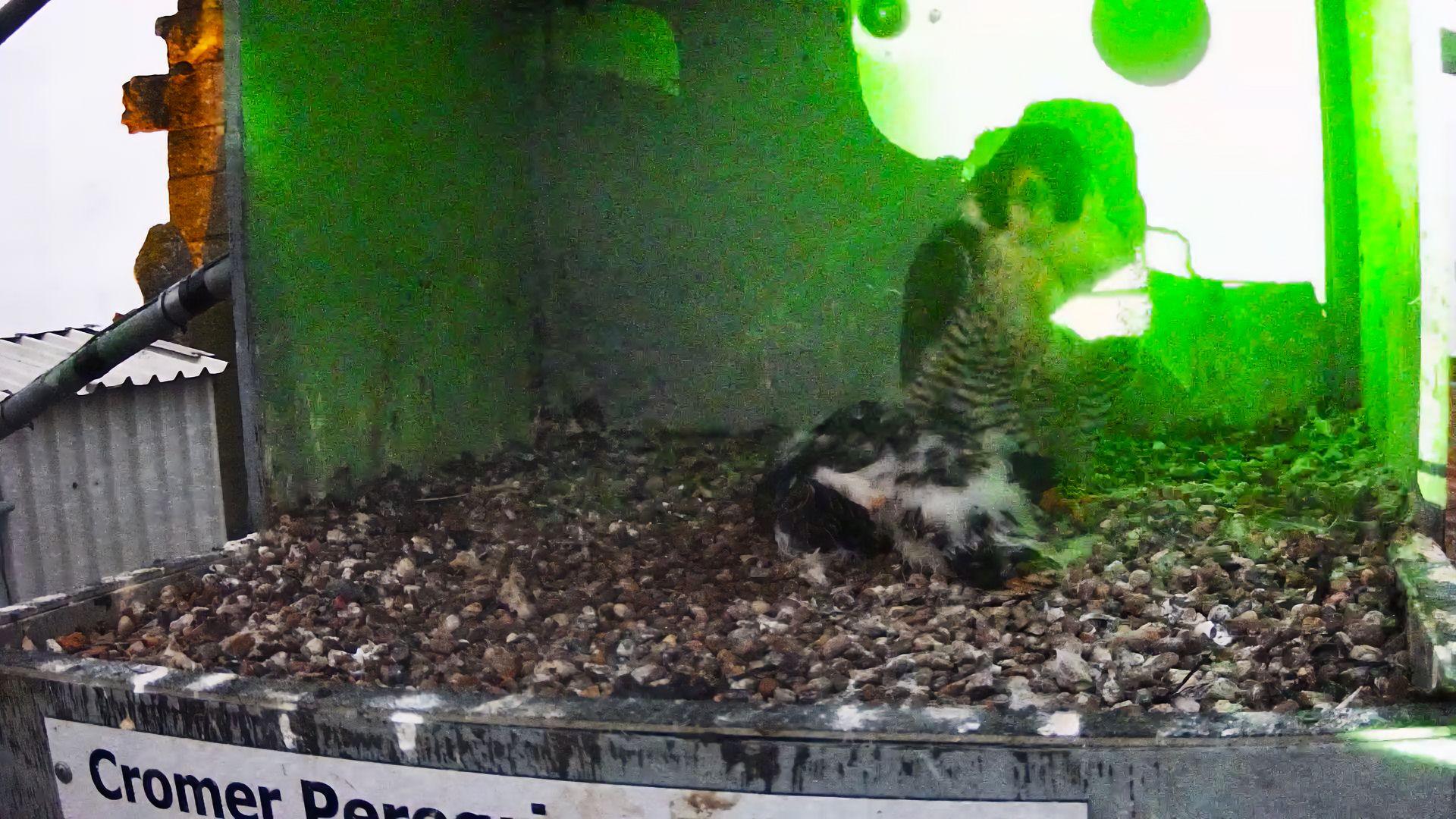Bats, angels and a leaky roof cause church dilemma
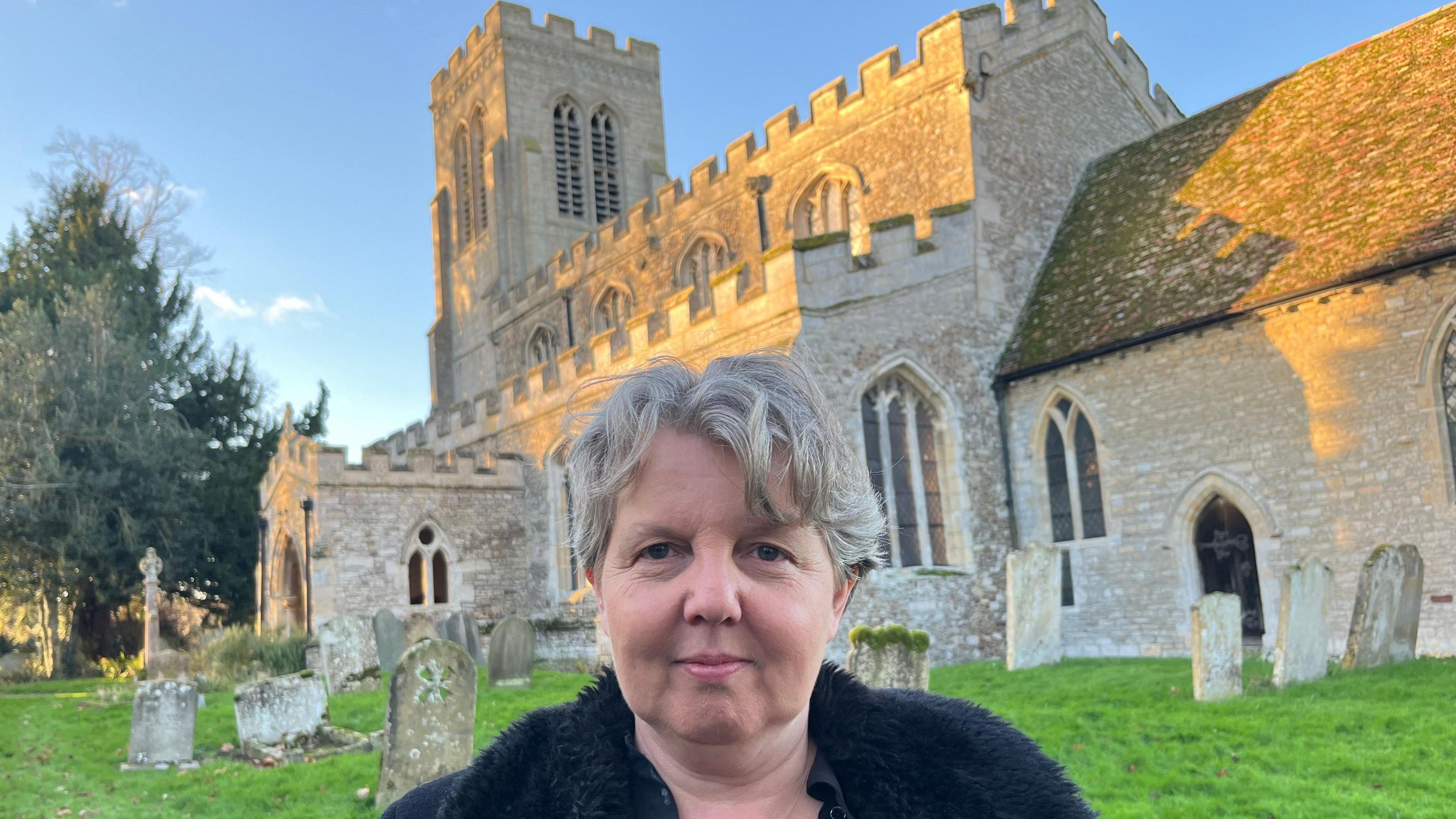
Beverley Vara says the church's carved angels were only saved during the reformation due to them being around 20m (65ft) high in the roof
- Published
A church warden said she faced a catch-22 situation involving a 14 Century church's leaky roof, 500-year-old wooden angels and a number of bats.
Beverly Vara said Huntingdonshire District Council would not grant planning permission to repair the roof of All Saints Church in Hamerton, Cambridgeshire until an ecology survey had been completed to protect bats in the building.
Yet, the bats were only present in the summer and she feared eight rare wooden angels carved into the church's roof could be damaged by water in the meantime.
The authority said it was "liaising with the church and looking into the matter to see what can be done".
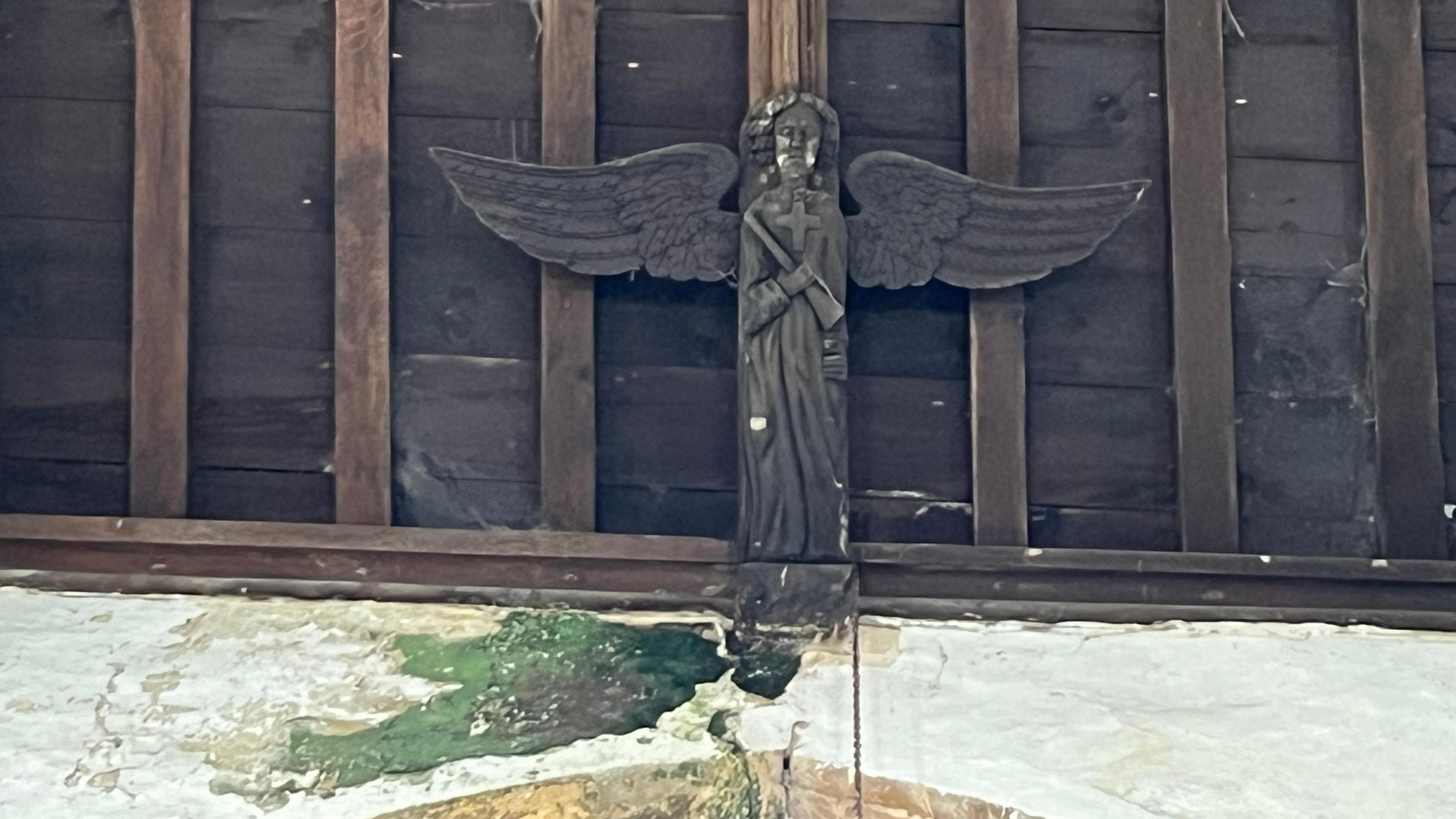
Parishioners were concerned about water damaging the church's eight carved wooden angels, which are about 1m (3ft) long
"You have jump through several hoops to get work done on old churches," said Mrs Vara.
"You need planning permission but we have to protect the bats too - which we are quite happy to do - but that means a bat survey can only happen when the bats are about, which is in the summer."
Mrs Vara said she was worried about potential water damage to the angels, which she described as "irreplaceable".
"If [the council] doesn't grant us planning permission now, due to timings we won't be able to repair the roof until 2026.
"We have to put funding into place to facilitate the work," she added.
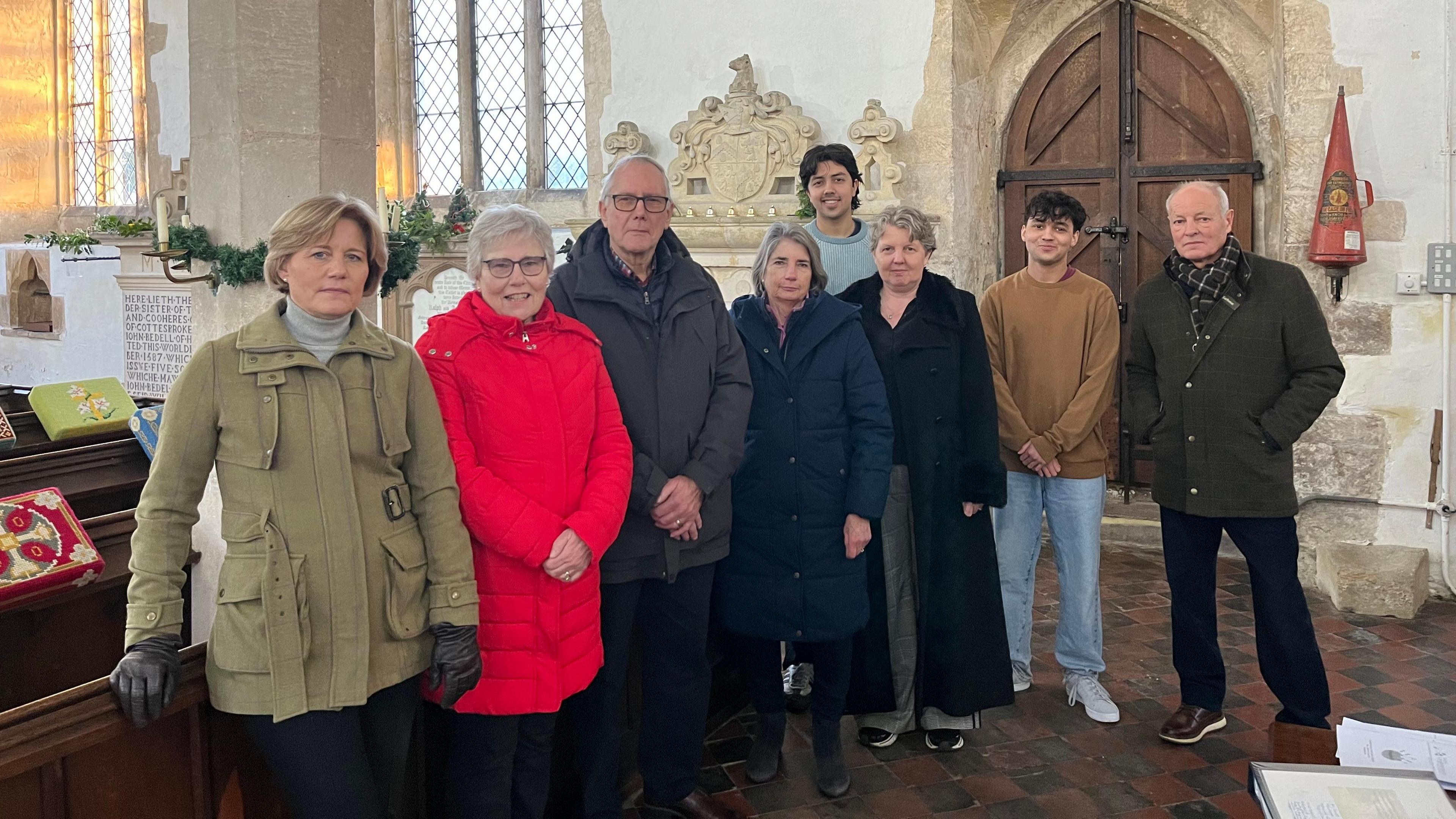
Congregation member Jane Saunders said it was disappointing a pragmatic solution had not been found
The Cambridgeshire Bat Group said bats tend to roost against timber in churches as it was a good insulator, and being a small mammal they lose heat quickly.
In winter bats hibernate or go into torpor and if they are disturbed it causes them stress as they waste valuable energy when their metabolism speeds up, the group said.
Most bat surveys are done in the summer months (from mid-May to July) as this would be the peak maternity season when bats are active.
Huntingdonshire District Council said the church's own ecology assessment identified there were bats roosting in the roof, which meant that a survey was required as part of the decision-making process.
It added that bats were a legally protected species and the council has a statutory duty to ensure their protection and surveys can only be carried out at certain times of the year.
It said the church did not carry out any pre-application engagement with the authority so it was dealing with this issue as part of the application.
"In terms of any repairs the church needs to carry out, they could explore and submit an Ecclesiastical Exemption but that has not been presented to us," it said.
Get in touch
Do you have a story suggestion for Cambridgeshire?
Follow Cambridgeshire news on BBC Sounds, Facebook, external, Instagram, external and X, external.
- Published28 November 2024
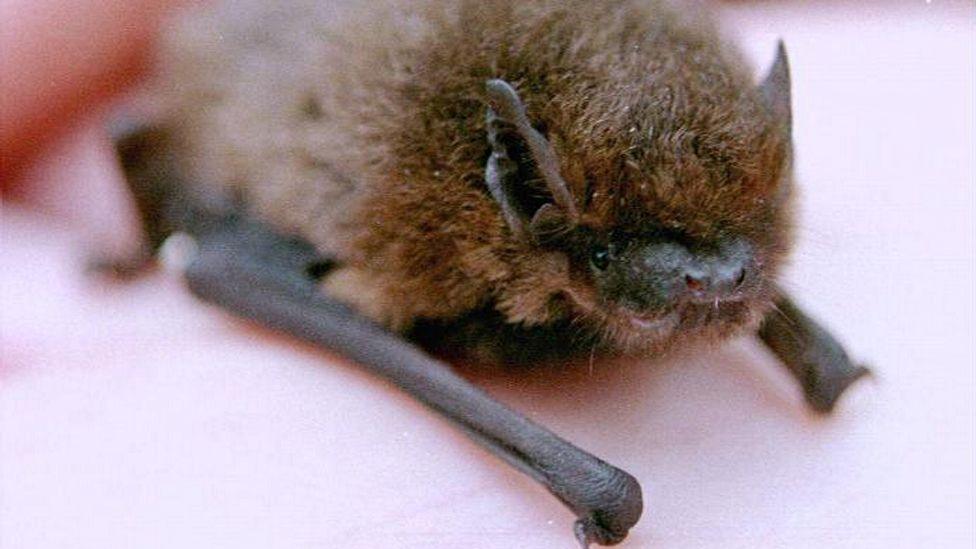
- Published24 November 2023
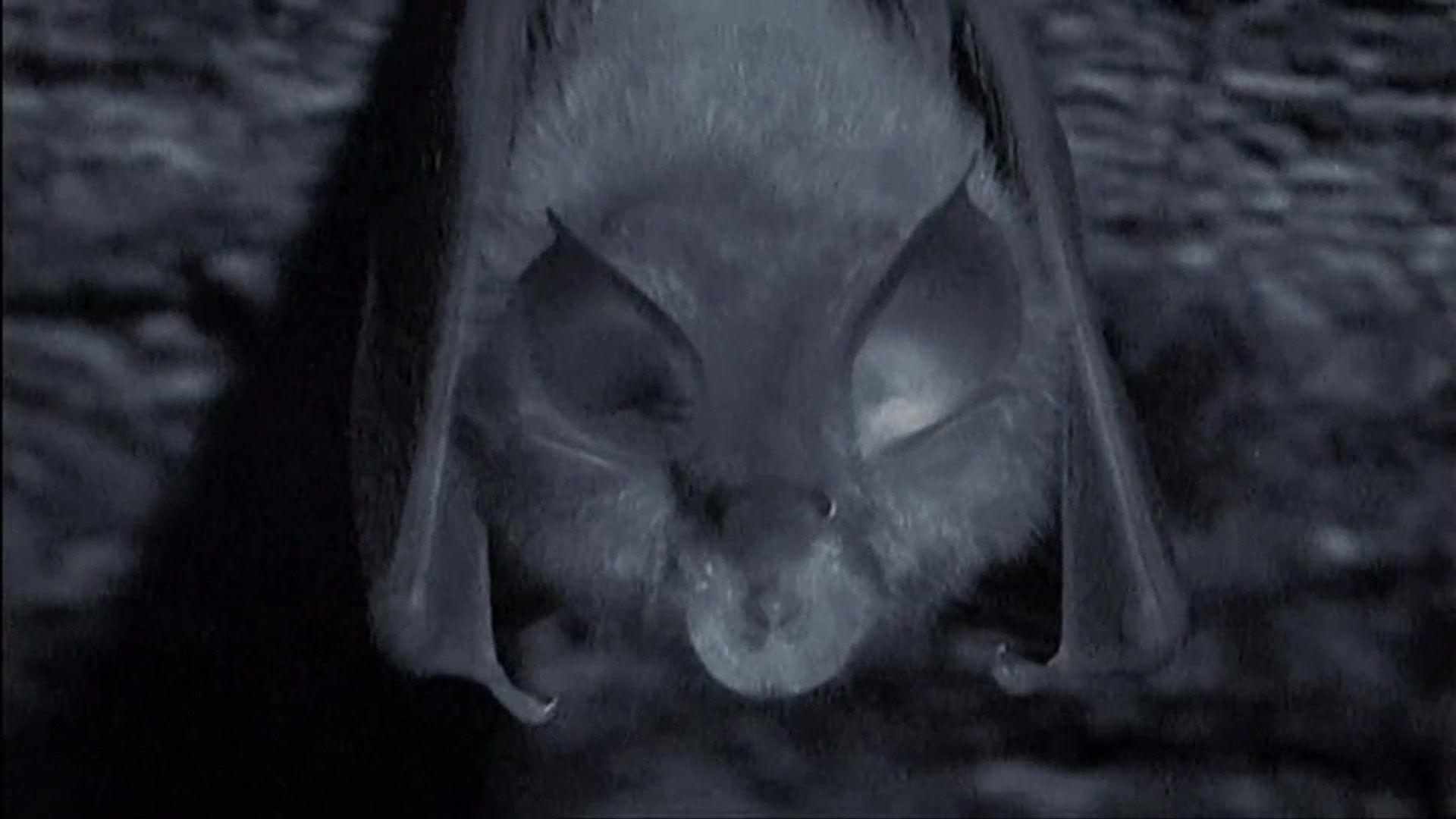
- Published30 May 2024
